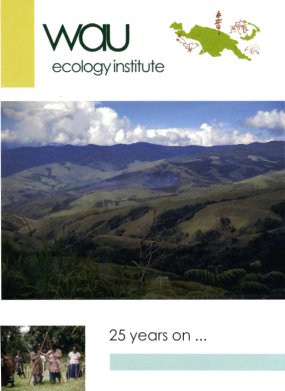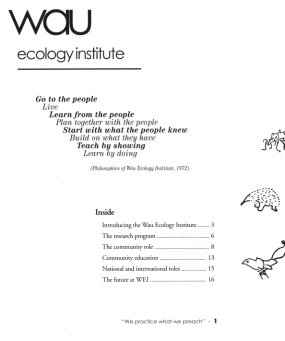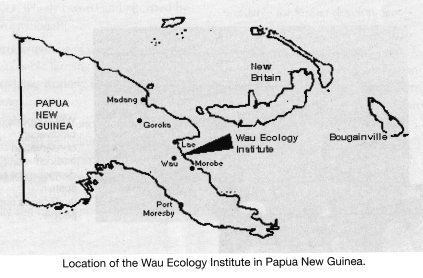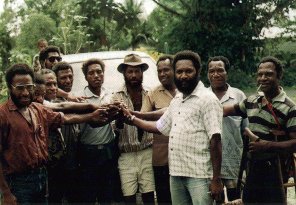

|
|
Introducing the |
In many tropical areas, development has been synonymous with conflicts between ethnic identities, communal property rights and traditional management systems on the one hand, and the demands of modern food, mineral and timber production on the other.While indigenous communities have traditionally lost this conflict, the situation is changing. Ecological and anthropological research shows the value of wild resources, such as medicinal plants and bush nuts, and the superiority of indigenous land management systems in the wise use of rainforests. Evidence from the Amazon basin of South America and the rainforests of East Asia has supported a conceptual shift in the way Western scientists view tropical environments and in their approaches to managing rainforests. For example, it is emerging that shifting |
agricultural uses few outside resources and energy , as long as there are
decades and not years between cultivations.
Re-establishing rainforests, with their complex mineral cycles, soil structure and ecology, are necessary for using these areas sustainably. During long periods of succession, populations of some plants and animals explode to take advantage of changing ecological conditions, to be later replaced by species better adapted to an ecological change which was often caused by the earlier species. This pattern poses problems for modern agricultural systems, as monocultures can suffer from pest outbreaks from nearby rainforests. Social contextPapua New Guinea (PNG) has undergone more profound social changes within one generation than most other nations on earth. In less than 40 |

WEI's Research Program1. Catchment Management - From the Mountain to the Sea 2. Rehabilitation of degraded land 2.1 Recovery and stabilisation of eroded steep lands 2.2 Rehabilitation of deserted coffee plantations 2.3 Conversion of secondary grassland to productive land management systems 2.4 Rehabilitation of mining sites 2.5 Rehabilitation of creek and river systems Agriculture 1. Stable Site Farming Program 2. Coffee planting in Degraded Rain Forest Forestry 1. Community Forestry in the Prince Alexander Conservation Program Alternative Landuse 1. Permaculture Program 2. Insect Ranching and Breeding Program 3. Ecotourism 4. Inventory and Screening of Medicinal Plants in PNG and Solomon Islands Conservation 1. Species Inventory 1.1 Inventory of Medicinal Plants in PNG 1.2 Inventory of Insect Species in PNG 2. Captive Breeding Programs 2.1 Birds of Paradise Captive Breeding Program 3. Conservation Area Program 4. Environmental Impact Assessment 4.1 Mining Impacts 4.2 Logging Impacts |
National and
|
|
Young people are PNG's future. WEI actively promotes the involvement of
young people throughout PNG in conservation programs, to address the
failures of past programs that have not allowed youths to fully participate in
making decisions. Young people are now becoming a significant force in
establishing non-government organisations (NGOs) and in protecting
the environment.
The Institute first addressed this concern in 1989, when it involved youths from Morobe, Madang, and East and West Sepik Provinces in programs that effected them. This initiative coincided with growing international concern for protecting PNG's environment. A meeting of regional youth groups was organised in collaboration with the national Young Men's Christian Association to discover their views on the establishing pressure groups to address environmental mismanagement, particularly destructive logging practices. |
After several days of meetings at WEI, the youths returned to their provinces,
resolving to develop environmentalgroups to speak out against
environmental degradation in the name of development.
In January 1990, the first meeting ofPapua New Guinea's NGOs was held at
WEI. Participants included youth and church groups and selected international
NGOs, who formed the first citizens partnership in PNG. They call for better
planning and management of the nation's natural resources and the
conservation of its unique and threatened biodiversity.
The Wau meeting elected WEI's Director, Harry Sakulas, as the founding chair PNG's National Alliance of NGOs (NANGO). Participants also developed the Wau Declaration, which called for pressure on the national government and private developers to become environmentally accountable. From this small group, NANGO has grown to over 150 member groups |
 across the country, lead mainly by youths. In 1993, NANGO wasrecognised as a
partnerby the PNG government for promoting and carrying out conservation
projects in the country.
across the country, lead mainly by youths. In 1993, NANGO wasrecognised as a
partnerby the PNG government for promoting and carrying out conservation
projects in the country.